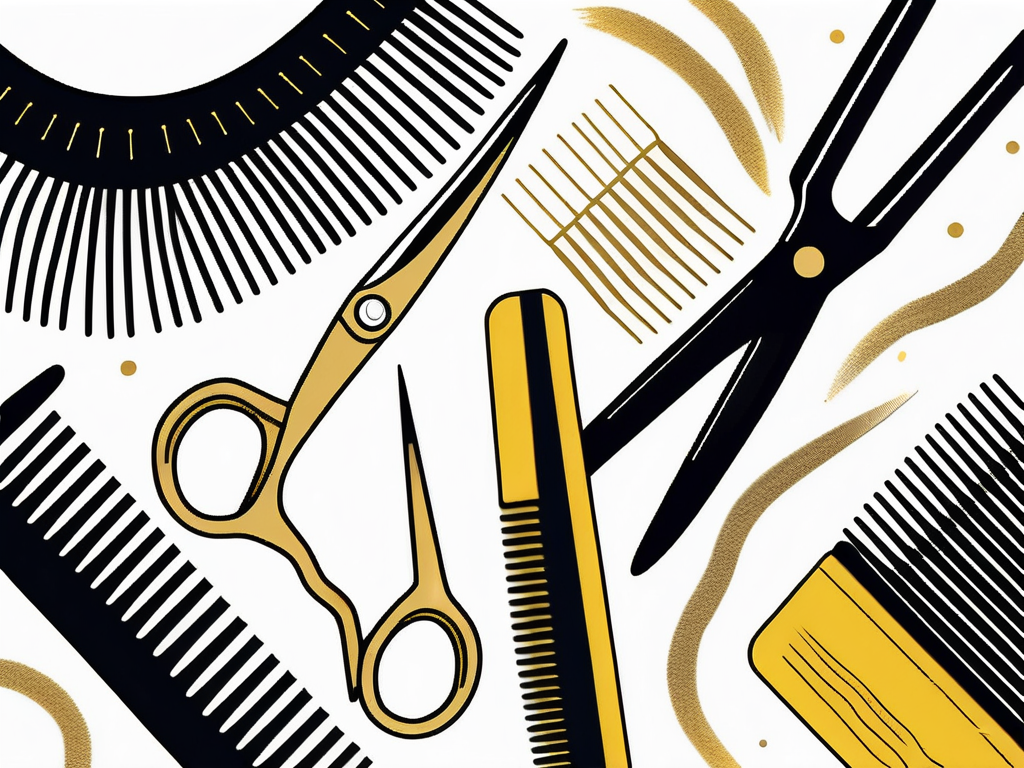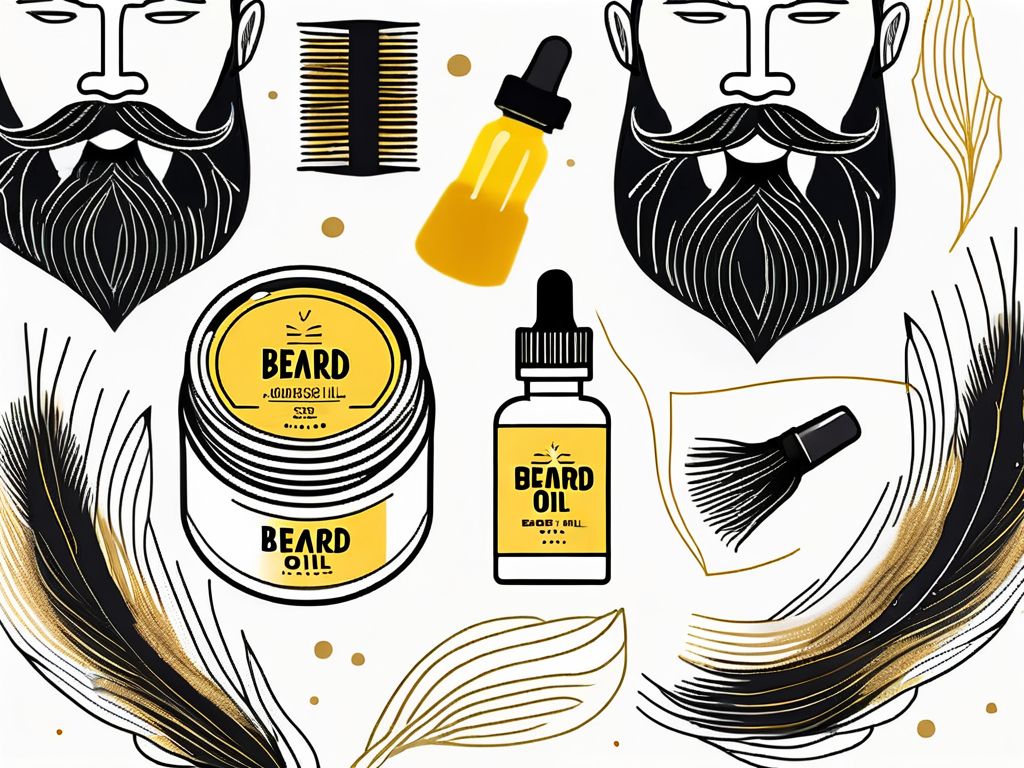Trustpilot (10,766+ Reviews)
Trustpilot (10,766+ Reviews)
Author: Faiysal Kothiwala
Published at: Jul 31, 2024
Did you know that the average man will spend around 3,350 hours shaving in his lifetime? That's a lot of time spent in front of the mirror, trying to achieve the perfect beard.
But what happens when you start noticing that your beard hair is falling out so easily? It can be frustrating and even a bit alarming. But fear not, my hirsute friend, because, in this article, we will delve into:
If you're noticing a significant amount of hair loss, it's important to explore the underlying causes. Here are some common culprits:
Nutritional Deficiencies and Beard Hair Loss: Just like the rest of your body, your beard hair thrives on a healthy diet. Certain vitamin and mineral deficiencies can contribute to hair loss, including biotin, zinc, iron, and vitamin D.
Hormonal Imbalances and Their Impact on Beard Hair: Hormones play a crucial role in beard hair growth. Imbalances, such as low testosterone levels or an excess of dihydrotestosterone (DHT), can wreak havoc on your beard game.
The Role of Stress in Beard Hair Loss: Stress not only takes a toll on your mental health but can also impact your physical well-being, including your beard. Chronic stress can disrupt the natural hair growth cycle, leading to increased shedding.
Improper Grooming Habits: Using harsh chemicals, over-brushing, or excessive heat styling can damage the hair follicles and lead to breakage. It's essential to choose grooming products specifically designed for beards.
Genetics and Beard Hair Loss: Genetics also play a significant role in beard hair loss. While you can't change your genetic predisposition, maintaining a healthy lifestyle and following a proper grooming routine can help minimize the impact of genetic factors on your beard.
Now that we've debunked some common reasons for beard hair loss, let's tackle a couple of myths that often cause unnecessary worry among beard enthusiasts.

Contrary to popular belief, shaving does not cause beard hair to fall out. It may feel like your beard is thinner after a fresh shave, but that's simply because the sharp edge of the razor cuts the hair at an angle, making it appear shorter and stubbly. Rest assured, your beard will grow back as fierce as ever.
While it's true that hair loss becomes more prevalent as we age, beard hair loss is not solely a sign of aging. The factors mentioned earlier, such as hormonal imbalances and nutritional deficiencies, can affect beard hair at any age. So, don't let a few gray hairs or a receding hairline discourage your beard-growing ambitions!
Another common myth surrounding beard hair loss is the notion that frequent trimming leads to thinner beard growth. In reality, regular trims can actually promote healthier and fuller beard growth by preventing split ends and breakage.
Trimming your beard every few weeks helps maintain its shape and removes damaged ends, allowing for more robust and uniform growth.
Stress is often blamed for a myriad of health issues, including hair loss. While stress can contribute to overall hair health, it is not a direct cause of beard hair loss.
However, chronic stress can lead to hormonal imbalances that may indirectly affect the quality of your beard hair. Practicing stress-reducing activities such as meditation, exercise, or spending time in nature can help support healthy beard growth.
Now that we've explored the causes of beard hair loss, it's time to take action and keep that mane intact. Here are some preventive measures and treatment options to consider:

Beard hair loss can be a distressing experience for many individuals, impacting not only their physical appearance but also their self-esteem. Understanding the importance of proper beard care and maintenance is crucial in combating this issue.
In addition to washing and moisturizing your beard, incorporating a balanced diet rich in vitamins and minerals can promote healthy hair growth. Foods like salmon, nuts, and leafy greens are known to nourish hair follicles and support overall hair health.
Good beard hygiene is essential for healthy hair growth. Regularly wash your beard with a gentle beard wash and moisturize it with beard oils or balms to keep both the hair and the underlying skin nourished and hydrated.
Furthermore, incorporating regular exfoliation into your beard care routine can help prevent ingrown hairs and promote better absorption of nourishing products. Exfoliating scrubs specifically designed for facial hair can help remove dead skin cells and unclog hair follicles, allowing for healthier and stronger beard growth.
Lastly, enhance your beard care routine, consider using a beard derma roller. This tool, equipped with tiny needles, can stimulate blood flow to the hair follicles, encouraging healthier hair growth. By rolling it gently over your beard area, you can boost the effectiveness of your beard care products and promote stronger, more resilient hair.
If you're looking for a little extra help in the beard growth department, there are over-the-counter treatments available. Look for products containing minoxidil, a medication that stimulates hair growth.
However, before embarking on any treatment, it's always wise to consult with a healthcare professional to ensure it's suitable for you.
If your beard hair loss persists despite your efforts, it may be time to seek professional help. Trichologists, dermatologists specializing in hair and scalp health, can conduct thorough assessments and provide personalized treatment plans tailored to your specific needs.
Remember, a well-informed professional can help you navigate your hair loss journey with expertise and compassion.
Beard hair loss is not just a physical concern; it can also have psychological implications. The journey of dealing with beard hair loss goes beyond the surface, delving into the depths of one's self-perception and confidence. It's a path that many individuals navigate with varying emotions and responses, from insecurity to acceptance.
Discovering patches or thinning areas in your beard can knock your confidence. But remember, beauty comes in all shapes and sizes, with or without a full beard.
Embrace your unique features and find joy in the journey of self-acceptance. Each individual's beard is a canvas that tells a story of growth and resilience, regardless of its fullness or pattern.
Exploring the realm of insecurity and anxiety related to beard hair loss unveils a complex interplay of societal standards and personal identity.
It's a space where vulnerability meets strength, where external perceptions clash with internal narratives. As you navigate this terrain, remember that your worth is not defined by the density of your beard but by the depth of your character.
While it's natural to desire a full and healthy-looking beard, it's equally important to practice self-acceptance and exercise patience.
The journey of beard growth is a testament to the art of waiting, nurturing, and embracing the process with grace. Each follicle that sprouts is a reminder of your body's resilience and your spirit's endurance.
Remember to nourish your body with special products from The Beard Struggle, manage your stress levels, and embrace the unique journey of growing a beard.
The road to a majestic beard may have a few twists and turns, but in the end, your commitment and care will be rewarded with a facial masterpiece that will leave others in awe. Stay bearded and be proud!
Comments